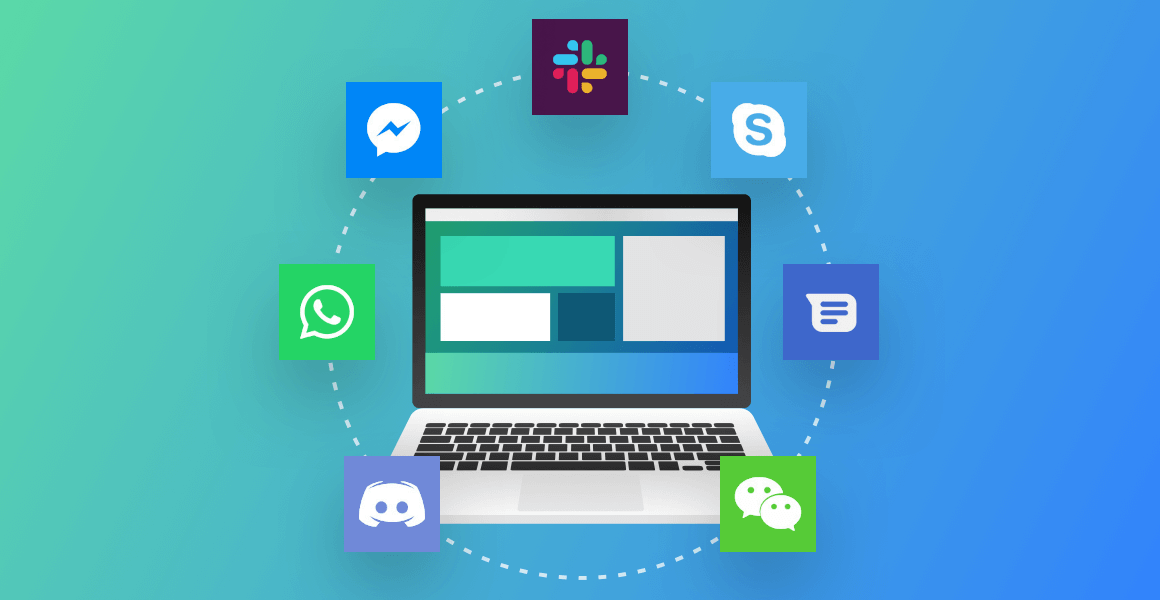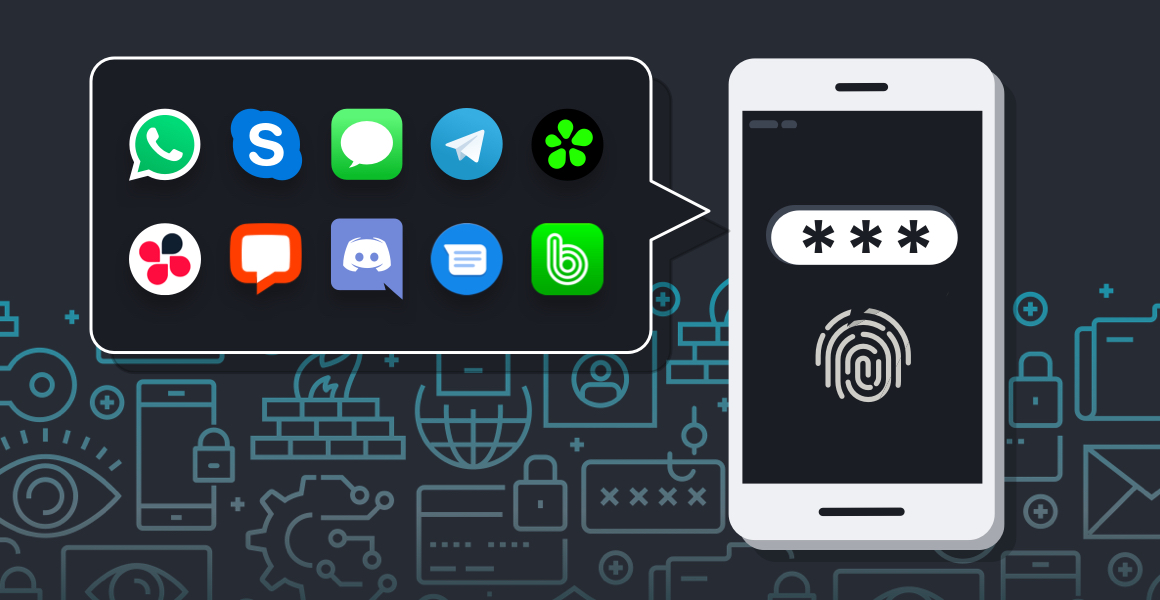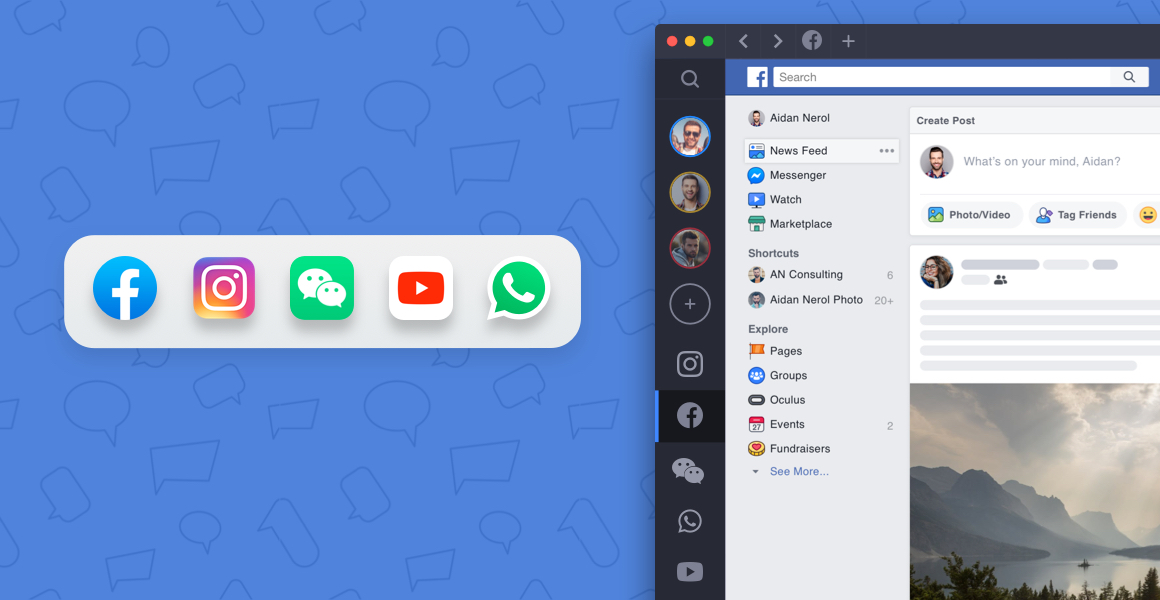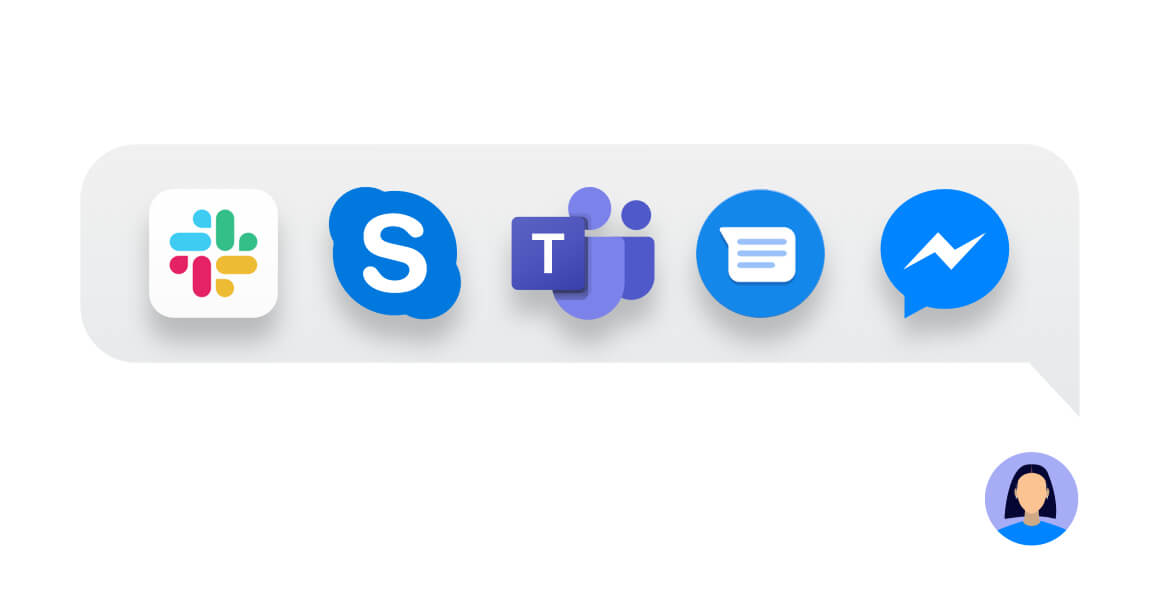Messaging apps have become a common part of how humans communicate. In many spaces, more traditional communication methods are being shoved aside in favor of apps like WhatsApp and Slack. A lot of workspaces are integrating other methods like email with messaging apps for a more robust collaboration experience. The incessant demand for being connected and responding faster is creeping into all aspects of our lives, and messaging apps are a symptom of the phenomenon. You might think you know all there is to know about such apps, but there’s more to the story. There are a few downsides to messaging apps that you might want to be aware of, and we’re exploring them here.
Messaging Apps and the Workplace
These days, finding a workplace without messaging apps is pretty rare. Because of the instant nature of communication on messaging apps, they are more likely to be used for non-work related conversation, particularly outside of working hours. Is that really a problem?
Instant messaging essentially gives people the ability to say what they want, when they want, and to whomever they like. This means conversations might be less than formal or even polite. People are more likely to let their unprofessional side slip out, and may even veer into totally inappropriate territory. Simply put, messaging apps have blurred the lines between professional and personal communication in ways that we don’t totally understand yet.
Related Article: How to Combine All of Your Messaging Apps in One Place
A recent Guild article cited a study that was conducted among HR professionals. In the survey, 40% of respondents said that WhatsApp was “detrimental to their working lives”. In fact, some of the specific responses included the following:
- “WhatsApp is like a viper’s nest”
- “It is primarily used for gossiping…about other members of staff”
- “I work in an office where [employees] sit there all day [...] messaging each other and sniggering like schoolchildren”
These might seem like extreme examples, but the truth is that this is the experience of many people in the working world. In the same study, People Management professionals also cited some specific problems regarding Slack. There was a report of an organization that discovered that some employees had set up private groups to share inappropriate and even obscene content. There were also mentions of bullying, harassment, and other issues.
These are rare scenarios and don’t represent typical usage of messaging apps - but the examples are out there. That can pose a problem for companies who aren’t aware of what’s going on with these communication channels. There is certainly an element of risk involved, as businesses open themselves up to breaches of confidentiality and data protection under GDPR, as well as bullying and harassment claims. Employers need to be mindful of things like banter that borders on bullying, or threads that rate the attractiveness of coworkers (a real-life example). Everything from terrible language to offensive GIFs and so much more are able to happen right under an employer’s nose without them knowing about it - and there can be legal consequences.
In September, Department of Justice (DOJ) Deputy Attorney General Lisa Monaco announced a revised set of DOJ Corporate Criminal Enforcement Policies. The policies were also detailed in a memorandum that was sent to all enforcement agencies within the DOJ. The memo included information on “additional metrics relevant to prosecutors' evaluation of a corporation’s compliance program and culture.” These metrics include the use of personal devices and third-party apps, stating:
“The ubiquity of personal smartphones, tablets, laptops, and other devices poses significant corporate compliance risks, particularly as to the ability of companies to monitor the use of such devices for misconduct and to recover relevant data from them during a subsequent investigation. The rise in use of third-party messaging platforms, including the use of ephemeral and encrypted messaging applications, poses a similar challenge.”
The material goes on to say “As a general rule, all corporations with robust compliance programs should have effective policies governing the use of personal devices and third-party messaging platforms for corporate communications, should provide clear training to employees about such policies, and should enforce such policies when violations are identified. Prosecutors should also consider whether a corporation seeking cooperation credit in connection with an investigation has instituted policies to ensure that it will be able to collect and provide to the government all non-privileged responsive documents relevant to the investigation, including work-related communications (e.g., texts, e-messages, or chats), and data contained on phones, tablets, or other devices that are used by its employees for business purposes.”
There have actually been civil charges announced by the Securities and Exchange Commission (SEC) and hefty fines brought by the Commodities Future Trading Commission (CFTC) for “recordkeeping failures associated with the use of third-party apps.” As workplaces continue to become more agile, messaging apps are likely to become more prominent. That can be a good thing as long as everyone is on the same page about mitigating risks.
Key Problems with Popular Messaging Apps
There are a lot of good reasons to use messaging apps in your personal or professional life. Sending an instant message is, well, instant. It sure beats walking down the hallway to track someone down for a disruptive chat. They also tend to be more visible than email and can connect people regardless of location - a key benefit for people in remote workforces. They are also generally easy to use with not much of a learning curve. Messaging apps certainly have their place and have done a lot to increase workplace efficiency, especially during the pandemic when people weren’t able to connect in person. However, there are some disadvantages of messaging apps to be aware of. Today’s platforms are far from perfect, and it’s important to be aware of the potential downsides of common messaging apps.
They can actually be a productivity - buster
Though one of the main perks of messaging apps in the workforce is that they can make collaborating more efficient, the opposite can also be true. Employees often spend a lot of time on unnecessary conversation, expanding their “water cooler” talk well beyond the break room. Some workplaces have reported that their employees spend hours each day using instant messaging, gossiping or generally wasting time. In some cases employees even used the messaging apps to appear busy when they had no work to do. They can also be distracting. Messenger notifications can be just as disruptive as a phone call or incoming email when someone is attempting to concentrate. Being completely “available” isn’t always a good idea when a deadline is looming, whether in your professional or personal life.
Related Article: Are All Your Apps Actually Killing Your Productivity?
There are potential security issues to be aware of
Despite many messaging apps insisting that they are private and secure, most are not. The truth is that you simply shouldn’t trust them to send information that you wouldn’t want other people to know. Though the chances are good that those messages will never see the light of day, you just never know. That’s because external instant messenger platforms are essentially on public networks, which means that they could easily be intercepted or hacked by external parties. Unless you know for a fact that whatever you send is properly encrypted, you’re opening yourself up to a risk. Furthermore, chats conducted on some messaging apps can be copied and pasted and then shared with someone else. There are other considerations around authentications, passwords, etc. There’s always the chance that information could fall into the wrong hands. Some messaging apps have more strict security protocols than others, but it’s better to be safe than sorry.
Related Article: 10 Most Secure Messaging Apps
It’s not effective for mass communication
Messaging apps are ideally suited to communication between two people, or small groups. When many voices are added to the mix, it can become difficult to keep up. Say you have an urgent message that you want to share with your whole team right away. You send the message, but then there are several immediate responses. For people who see the chat later in the thread, they’ll miss your original message and be buried in the subsequent notes. In this way, messaging apps can be similar to email. While messaging apps may cut down on some email messages, they can also be a distraction or even an annoyance and overlooked by the people you are trying to communicate with.
Related Article: How to Manage All Your Social Media Accounts in One Place
There are problems with archiving
It depends on the messaging app, but some systems won’t allow you to search for previous conversations when you log in to a new session, which means you can’t go back and look for previously shared information at a future date. On the other hand, some systems do have archiving functions, but you’d need to give some thought to a whole range of protocols around what to name the files so they can be useful and searchable. The whole point of messaging apps is to facilitate faster and better communication, but that can become difficult if you can’t access older conversations. In some environments, these messaging apps can even contribute to “silos”, rather than break them down.
A lack of control in a business environment
We went into detail on this point above, but it’s worth noting that a disadvantage of messaging apps is the lack of oversight in companies. Organization leaders have no say regarding what’s being discussed on these apps. Even if they have the appropriate protocols and procedures, who is making sure they’re being followed? Doing that in itself could be someone’s full time job. You don’t have much control over whether information being sent is correct, useful, constructive - or even appropriate.
Related Article: The Best Team Chat Apps for Remote Work
Consolidating Messaging Apps for Increased Productivity
Some of the issues of messaging apps are just inherent with their use, and there’s not much you can do to change them. However, there are definitely ways you can reduce the districation associated with messaging apps - especially multiple platforms - and increase your productivity. Shift can help you to manage your messaging apps in two different ways.
For one thing, depending on how you use various messaging apps, it may be important to separate your business and personal accounts. For example, if you have group conversations going on with a work account but also use that platform for personal reasons, you run the risk of getting them mixed up. You wouldn’t want to log into your work thread and send a note meant for your friend. You can see how this could be very problematic and take some brain-power to keep straight. With Shift, you can ensure these instances are separated and the notifications are aggregated in the way that you want. You can set up workspaces so that your desktop shows all of the systems you use for work or personal use. For example, when you log in to your work instance it will show your work messaging apps, your work email account, and other tools that you use for work. In your personal instance you can see your own email account, private messaging apps, Google Docs, banking app, etc.
Related Article: How to Get a Notification Aggregator for Desktop
When it comes to productivity, Shift can aggregate your notifications to reduce distractions. Rather than getting pinged every time someone sends you a message on every app you use, you can simply have everything in one place and view a dashboard of notifications when it’s convenient.
An innovative app like Shift will consolidate all your most-used apps in one place. This includes many of the messaging apps you might use. You can pull all your email addresses, messaging accounts, and social media platforms into one dashboard, toggling between each of them effortlessly. Instead of a cluttered taskbar at the bottom of your screen, you’ll have one icon that takes you to all of your most-used apps.
If you use extensions like Grammarly or Boomerang, you can also add those to Shift. You’ll get the same functionality you’d have if you were bouncing from app to app. Once you have all the apps you want, you can customize your experience. Set up notifications the way you want them to come through and personalize your dashboard to look the way you prefer.
Shift works well with thousands of today’s most popular apps. Browse our app directory and discover all the ways that Shift can streamline your communications.





















 Share on Facebook
Share on Facebook Share on Twitter
Share on Twitter







